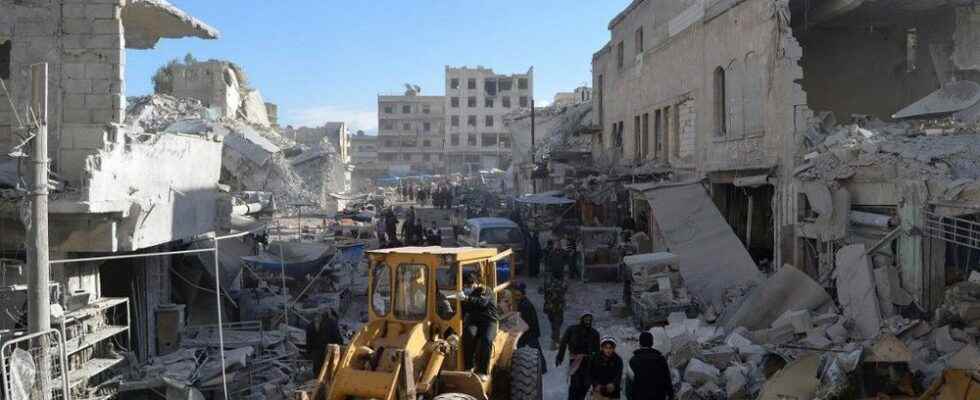The new Russian strategy aimed at seizing eastern Ukraine now has a face and a name: General Alexander Dvornikov, appointed on Saturday April 9 by the Kremlin as commander-in-chief of its invasion. A significant strategic reorganization, while the various Russian forces present in the country have until now been organized and commanded separately.
His mission: to supervise the imminent Russian offensive in the Donbass and to make people forget the more than laborious beginnings. “Instead of having four separate axes of operations in Ukraine, Russia now only has a single strategic command, specifies General Dominique Trinquand, military expert and former head of the French mission to the UN. appointment should therefore allow for better coordination of Russian forces.”
Particularly Brutal Officer
General Dvornikov, 60, has commanded Russia’s Southern Military District since 2016 – which includes Crimea and Donbass. He started his career in 1982 as a platoon commander in the Soviet Army. After having fought in the second Chechen war as a colonel of a motorized rifle division of the North Caucasus military district, he was decorated on May 6, 2000 with the order “for Merit to the Fatherland”, then multiplied high-ranking positions.
A military career during which he forged a reputation as a particularly brutal officer. His role in the massacres perpetrated by the Russian army during the intervention launched in 2015 to support the regime of Bashar el-Assad will even earn him the nickname of the “butcher of Syria”.
Syrians search for survivors in the rubble of a building, following Russian airstrikes targeting a market and residential area in Idlib on November 29, 2015.
Mohammed Amin Qourabi / Anadolu Agency via AFP
Placed at the head of the Russian forces from the start of the operation, he supervised the strikes against civilian areas and hospitals in several towns in the province of Idlib and in Aleppo – the country’s second largest city – in order to break the Syrian resistance. The Russian forces had notably been accused of resorting to “double tap“(“coupled fire”), which consists of waiting for help to come out of the victims of the rubble after a first bombardment, before striking a second time in the same place.
Thanks to this operation, considered a resounding success in Russia, he was named “Hero of the Russian Federation” in 2016 – one of the highest honors of the country. Four years later, he rose to the rank of army general.
The fear of further abuses
“His appointment clearly shows a willingness on the part of the Russians to relaunch the offensive in an implacable manner, underlines Samantha de Bendern, researcher specializing in Russia at Chatham House, a London think tank. This is a bad sign which suggests an intensification of brutality.” In the short term, the main objective is to take Mariupol, whose next fall seems inevitable. Then, Moscow aims to encircle the Ukrainian forces present in the east of the country.
What to fear new abuses, after the Russian bombardment on the station of Kramatorsk, Friday, having caused the death of 57 people including 5 children. Or the shock of the mass graves discovered in Boutcha, a city that has become the symbol of the atrocities committed by the Russian army. London also announced on Monday that it was trying to verify information on the possible use of chemical weapons in Mariupol by Russian forces, after Ukrainian accusations to this effect.
Priests pray in front of a mass grave with new corpses, in the small Ukrainian town of Boutcha, on April 7, 2022.
afp.com/RONALDO SCHEMIDT
Will Dvornikov’s appointment be enough to change the situation on the ground, for Russian forces worn down by more than six weeks of fighting? “If it is certain that the unity of command will improve decision-making, it is not guaranteed that Dvornikov will manage to give new impetus, considers General Trinquand. Russia lost a lot of resources in the first phase of its operation, so everything will depend on the ability of the Russians to strengthen their military posture.”
But time is running out for the new warlord. Moscow urgently needs to be able to brandish a military success by May 9, the date celebrating the Soviet victory against Nazi Germany. “Symbolically, it would be important for the Kremlin to be able to post a victory, abounds Samantha de Bendern. But beyond that, General Dvornikov will be all the more motivated to achieve his objectives as we can wonder about the fate that will be reserved for him in present-day Russia if he does not succeed.”
